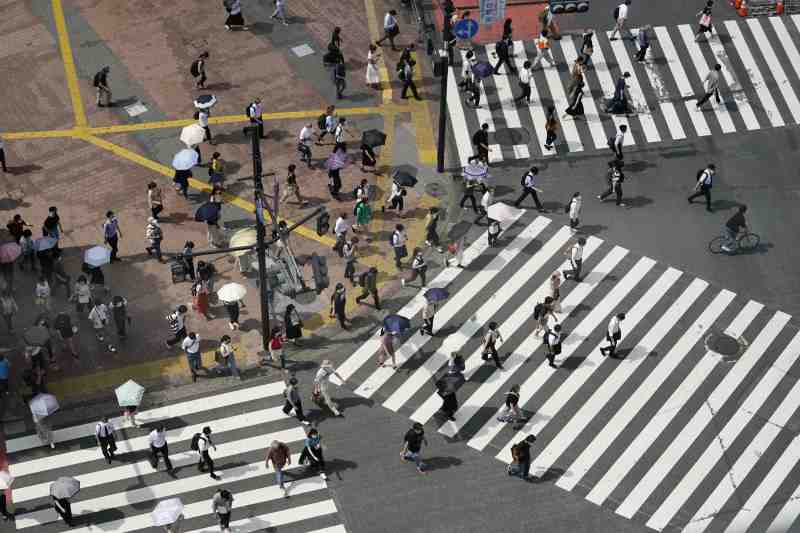
Pedestrians cross the Shibuya scramble crosswalk in July, 2021.
November 19, 2021
Economic and social activities will be restricted more lightly than before, even during a pandemic state of emergency, under a policy change decided by the government on Friday.
At the government’s subcommittee meeting of experts on basic measures to deal with the novel coronavirus, strengthening the medical system was also decided.
On Friday morning, the policy was presented and approved at the meeting, and it was officially decided at the government task force meeting in the afternoon.
This is the first revision of the basic coronavirus response policy since the Cabinet of Prime Minister Fumio Kishida was launched.
Under the new guidelines, the government plans to create a system by the end of November that will be capable of accepting 37,000 people at hospitals, about 30% greater than the number of patients hospitalized during this summer’s infection peak.
The new guidelines also include a policy that the government will be responsible for securing hospital beds on an emergency basis by restricting regular medical services if the spread of infections is expected to put pressure on medical care.
The guidelines also will allow restaurants and other food service establishments, if they are approved by prefectural governments, to serve alcohol and stay open until 9 p.m. even under a declared state of emergency.
Using the government’s so-called vaccine and testing package — under which COVID-19 restrictions are eased if people have proof of vaccinations or negative test results for the virus, there will be no restriction on the number of people at such establishments, with groups of more than four people allowed.
In addition, full capacity will be allowed at events if organizers submit a safety plan for infection prevention.
The government also removed its target of cutting commuters by 70%, for which it had called on businesses to reduce the number of employees at offices.
The indices for judging whether to issue a declaration of emergency or take other measures will be changed to five levels based on the strain placed on the health care system, from the current four stages that are based on the number of newly confirmed cases.
Top Articles in Society
-

Man Infected with Measles Reportedly Dined at Restaurant in Tokyo Station
-

Man Infected with Measles May Have Come in Contact with Many People in Tokyo, Went to Store, Restaurant Around When Symptoms Emerged
-

Woman with Measles Visited Hospital in Tokyo Multiple Times Before Being Diagnosed with Disease
-

Australian Woman Dies After Mishap on Ski Lift in Nagano Prefecture
-

Foreign Snowboarder in Serious Condition After Hanging in Midair from Chairlift in Nagano Prefecture
JN ACCESS RANKING
-

Japan PM Takaichi’s Cabinet Resigns en Masse
-

Japan Institute to Use Domestic Commercial Optical Lattice Clock to Set Japan Standard Time
-

Israeli Ambassador to Japan Speaks about Japan’s Role in the Reconstruction of Gaza
-

Man Infected with Measles Reportedly Dined at Restaurant in Tokyo Station
-

Videos Plagiarized, Reposted with False Subtitles Claiming ‘Ryukyu Belongs to China’; Anti-China False Information Also Posted in Japan






















